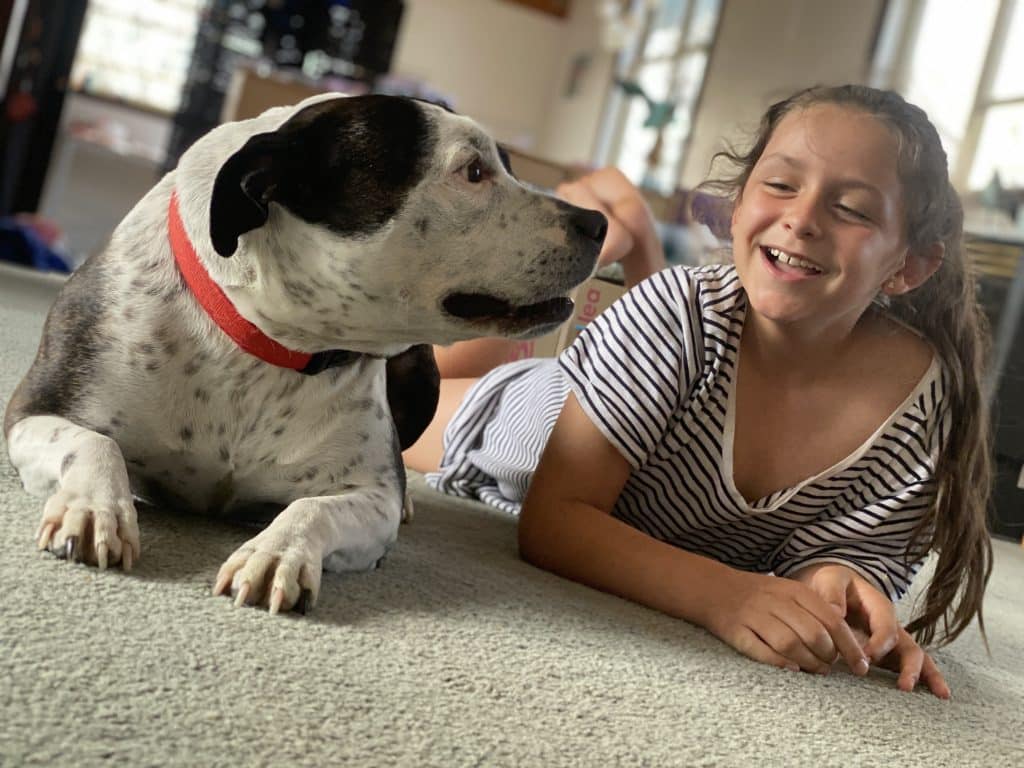Article from 2022 Impact of Giving Annual Report
When 11 year old Charlotte is feeling well, she loves nothing more than singing, dancing and painting. She is outgoing, loves going to school and playing with friends. However, when she’s unwell and experiencing the symptoms associated with Progressive Familial Intrahepatic Cholestasis (PFIC), a condition that affects her liver, Charlotte’s life is put on hold.
When she was just three months old, her parents, Lou and Len, noticed that her skin and eyes had become jaundiced. Charlotte was hospitalised and eventually diagnosed with a form of PFIC, a rare, life threatening liver disease.
In PFIC, the flow of bile from the liver is impeded and the build-up of bile in liver cells results in damage to the liver. One of the symptoms associated with PFIC is severe itching (pruritus).
Periodically, Charlotte’s liver doesn’t function properly, and she suffers from episodes of extreme itching, sleep deprivation, weight loss, nausea and jaundice. These episodes can last for months at a time.
“During these episodes Charlotte is irrepressibly itchy and scratches constantly, resulting in scratches, soreness and bleeding. The itching escalates at night and Charlotte is often unable to get to sleep until five or six in the morning, when she might finally fall asleep for a few hours,” said Charlotte’s mum Lou.
“Throughout the night Charlotte has multiple showers to try and get some relief from the relentless itching, but really there is nothing that helps to alleviate the itch. So far, no medications have been effective at reducing her symptoms or lessening the duration of her episodes.”
Charlotte will be 12 in December, and as she gets older her episodes appear to be getting worse. She is currently in the midst of an episode that has been ongoing for seven months. Last year, Charlotte had an episode that lasted for five months, and previous episodes tended to last for three months. This condition means that she misses months of school and when Charlotte is unwell, Lou is unable to work as she effectively becomes Charlotte’s carer.
“The condition is cruel and debilitating. This episode seems like it is going on forever. It is the worst episode Charlotte has had so far and has resulted in Charlotte losing so much weight that she had to be fed via a nasogastric feeding tube for a while” said Lou.
However, there is hope on the horizon for Charlotte and her family. Charlotte has been accepted into a clinical trial at the RCH through the MCTC. The trial is for a new medication, Odevixibat, for children with PFIC. The medication is believed to decrease the reabsorption of bile across the intestine and improve the symptoms and consequences of PFIC, including the intense itch.
Professor Winita Hardikar is leading the RCH arm of the global trial, which involves just three children in Australia and 120 children worldwide.
“As a paediatric hepatologist, I look after children with rare, severe and chronic liver disease, many of which have no effective treatment. Participation in clinical trials allows us to access medications to manage, treat and even cure some of these conditions. For a patient like Charlotte, who suffers from PFIC, which is an extremely rare condition, clinical trials are the only way to access promising and expensive new treatments,” said Winita.
Charlotte and her family live in Armidale in regional New South Wales and will be required to travel to the RCH every few weeks to participate in the 84 week trial. So far, Charlotte has travelled to the RCH three times for screening visits and the family have just received confirmation that Charlotte can begin the medication.
“We don’t know whether the medication will help Charlotte, but we are quite hopeful that it will improve her quality of life. The condition is debilitating and disruptive, so if the medication is effective, it will be life changing” said Lou.
